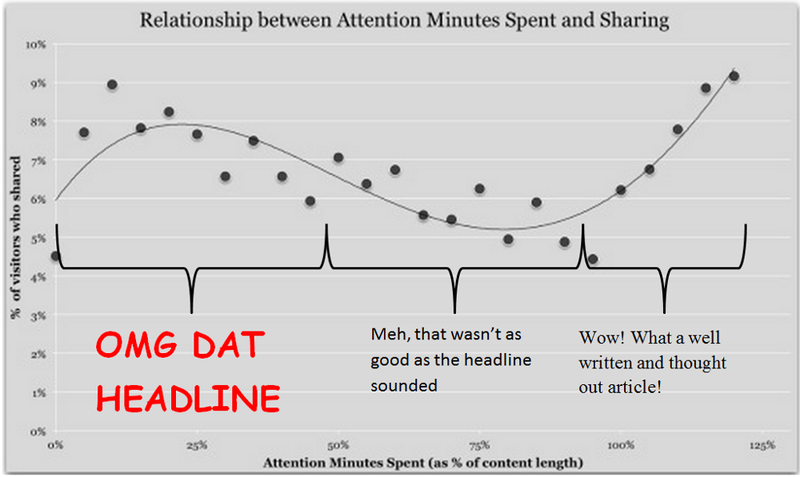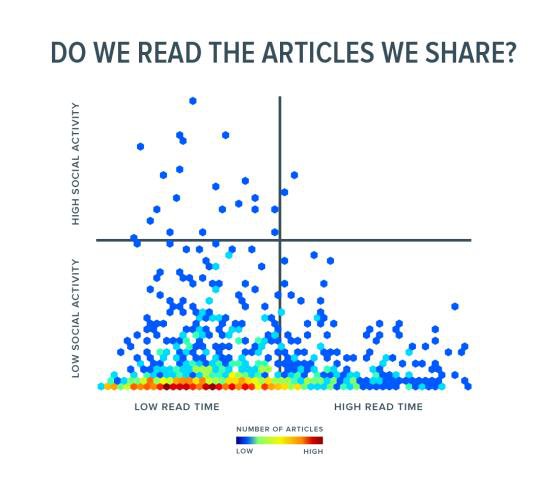From longform renaissance to Big Internet disenchantment (#B2B4ME part 2)
Imported from the Blogactiv.eu blogging platform, closed without warning in 2021. Links, images and embeds not guaranteed, and comments not displayed.
As I mentioned in my previous post, the past couple of years have seen a lot of innovation in online content strategy, coupled with growing disenchantment with "Big Internet".
These trends triggered my return to blogging, so I thought I'd start with an overview.
The Rise of Longform
Across the pond, the past few years have seen a huge upsurge in longform content, as people reacted to what the 500-700 'classic' blog post had become: contentfarm HowTos and clickbait listicles destined for Facebook. All distracting chaff of basically zero intellectual value.
Google algorithm updates killed the content farms a few years ago (along with many excellent sites like Metafilter), but it was only last month that Facebook announced it was targeting clickbait. The upsurge in unfashionably long content wouldn't have happened if the data didn't support it. The best place to start is this wonderful graphic on Medium, riffing off the original Chartbeat data (published in Time of all places):

Original link
As the post points out:
"on the hill-valley-hill landscape of media content diffusion, you’re better off on the righthand hill.” - You gotta read this!
Or, as I keep banging on until my head hurts, Being useful beats being tuneful. The other momentous finding of the Chartbeat data, by the way, was the utter lack of correlation between reading and sharing:

"We looked at 10,000 socially-shared articles and found that there is no relationship whatsoever between the amount a piece of content is shared and the amount of attention an average reader will give that content." - What You Think You Know About the Web Is Wrong
(more: 15 posts on my TumblrHub are tagged longform, including one summarising 7 more; I covered the Chartbeat data on LinkedIn: "You're probably analysing the wrong thing" and "Get a process: Read before you Share!").
Online content: new paradigms, new players
Longform is part of a wider story, as US venture capital pours into a new generation of newsmedia stratups, all with brand new ideas about covering the news and telling stories. Which may have something to do with the fact that an early American political media startup is creating new European media (TumblrHub: PoliticoEU) while French media are still trying to integrate their newsrooms:

"French journalists are protected by collective bargaining contracts that provide perks, including long vacations (12 weeks per year or more in some cases). They make it hard to shift print journalists over to write for the Web... integrated newsrooms that combine digital and non-digital coverage remain the exception. “A journalist who left in 1982 and returned in 2014 would find things organized in just the same manner” ... - Plus ça change…, Nieman Reports
And did I mention that Libération is to fire a third of its workforce to save it from closure? OK, in fairness: France also has MediaPart (also covered in depth in Nieman's excellent article), while Politico is creating their new venture with Germany's Axel Springer.
But there's no doubt where the innovation is coming from. There are too many interesting trends and individual companies in the US media scene to mention here, but they all have a few things in common, such as:
- they're 'technology companies who do news', not 'content companies wrestling with technology'
- they believe that the newspaper model - covering the news every day in a series of discrete articles - is past its sell-by date
- either keep it short, or make it long
Together they're a revolution - the innovations in CMS technology and information architecture alone are worth a whole series of posts. And I'm not really going to be able to cover them on Twitter which, in any case, is heading the wrong way for my tastes... (more: try content strategy, news, storytelling, media or information architecture. Sorry - Tumblr doesn't have controlled or multilevel vocabularies).
The tightening of the Filter Bubble
The Filter Bubble was published in May 2011 by Eli Pariser, who then very ironically went to co-found Upworthy. But despite the huge attention the book received, it only seems to have become real to most people this year with two key events:
- Facebook "experimenting" on users via their feeds;
- comparing the same user's newsfeeds on Twitter (#Ferguson) and Facebook (#icebucketchallenge).
- I Liked Everything I Saw on Facebook for Two Days. Here’s What It Did to Me,
- and I Quit Liking Things On Facebook for Two Weeks. Here’s How It Changed My View of Humanity
This triggered quite a bit of critical analyses of Facebook's influence on how we consume news - basically reiterating the main tenets of Pariser's book, but this time with data collected as people started feeling the outlines of the filter bubble from the inside. And just as I was composing a short post juxtaposing conclusions from two of these experiments: ... the news fell from the sky last week: Twitter is considering an algorithm as well. (more: all this ended up as a dozen or so TumblrHub posts tagged filterbubble, FBLabRats, Facebook, Twitter and/or algorithm; I wrote a post about Pariser's book in July 2011)
Hence, back to blogging
I think I subconsciously decided to restart my blog the moment I heard that news about Twitter. It capped off a journey that has taken me back to where I started. When I set out to explore other blogging platforms a year ago, I found out firsthand how Faustian the bargain is between platform and content creator:
"... sure, you get a shot at their audience. But … they decide how you will publish, and who will see it, on the basis of their commercial strategy, not on the basis of what you want to say, or how you want to say it." - Where to find me, October 2013
As I mentioned in Blogging on LinkedIn, or Paying on Facebook? Facebook reinforced that message with an early 2014 algorithm change which essentially forces brands to pay Facebook to let their fans see their content. When coupled with comparisons of #Ferguson on Facebook and Twitter, a lot of people are concluding that the owners of these platforms don't care at all about the people who provide the content on their platforms, or the societies in which they live.
But it is that very content that makes their platforms so compelling, and makes them so rich. That resulting feeling of disquiet, bordering on disgust, coupled with the realisation that I need to write longform again if I am to keep learning, led me back here. Of course, the revival of blogging is almost as old a story as the death of blogging, but soon enough I noticed that I wasn't alone. Some of the most recent posts tagged blog on my TumblrHub include:
"some of what was best about Twitter — primarily the experience of discovery — is now pretty clearly a thing of the past." - The end of Big Twitter
"... a sense of exhaustion with what I’m calling Big Internet ... centered around giants like Google and Facebook and Twitter and Amazon and Apple. ... they’re fat and bland and obsessed with expanding or defending their empires. They’ve become the Henry VIIIs of the web. And it’s starting to feel a little gross to be in their presence." - Big Internet
Of course, blogging here is also partly a Faustian bargain - BlogActiv brings EurActiv's audience, but any multi-blog platform will impose technical limitations of its own. But, unlike Big Internet, the audience is highly focused, and WordPress at least gives you access to the HTML, even if I don't have the same freedom as I would on my own site. Besides, EurActiv's founder promised me a long overdue BlogActiv upgrade. Over to you, Christophe! ;)
Related reading
More Stuff I Think
More Stuff tagged b2b4me , news , media , blog , facebook , innovation , publicsphere , social media
See also: Content Strategy , Online Strategy , Online Community Management , Social Media Strategy , Content Creation & Marketing , Innovation Strategy , Communications Tactics , Social Web , Media , Politics , Business